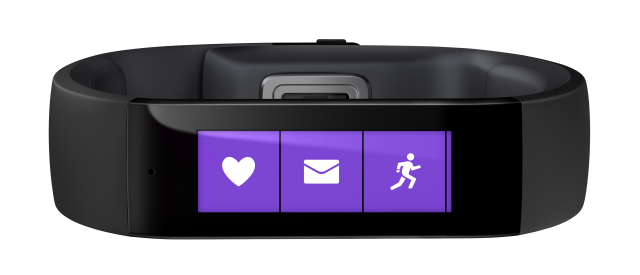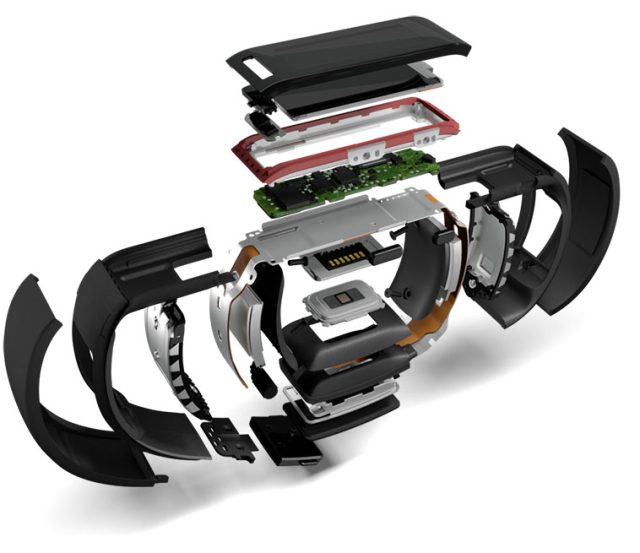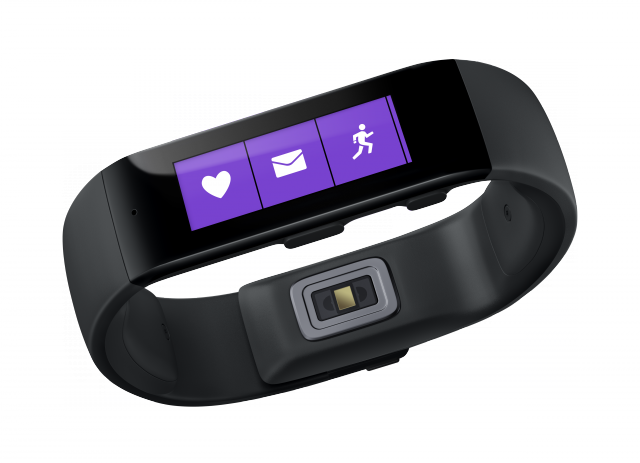
After being leaked just a few hours ago, it's now official: Microsoft's first entry into the wearable space is Microsoft Band, a fitness band.
The gadget isn't a smartwatch and isn't intended to replace your watch. It's a Bluetooth fitness band packed full of sensors: optical heart rate sensing, 3-axis accelerometers with a gyroscope to track movement, GPS to track your runs even if you leave your phone at home, skin temperature, galvanic skin response presumably to measure sweating, ambient light and UV light, and a microphone so it can be used with Cortana on Windows Phone.

The 1.4-inch touch screen with its 320×106 resolution can deliver alerts, and there's a vibration motor too. Twin 100mAh batteries give it 48 hours of what Microsoft calls "normal use" though GPS can shorten this. The charge time is 1.5 hours, using a magnetically attached USB charger. There are three different sizes, so it should fit on most wrists.
It'll work with any Bluetooth LE device running Windows Phone 8.1 Update, iOS 7.1 or newer on an iPhone 4S or newer, and Android 4.3 or newer.
On top of its health monitoring, the Band will also be able to show notifications, such as texts and incoming calls. There will also be some limited app partnerships. For example, you'll be able to load your Starbucks card into the Band, and it'll show the barcode to let you pay for things at Starbucks. This is weird on multiple levels; the other app partnerships are all, as one would expect, health-related, being things like run-tracking and workout advice, and further, Microsoft still doesn't have an official Starbucks app for Windows Phone. With Band, it looks like Windows Phone users will finally get the smartphone app they've been wanting. They'll just have to pay $199 for the privilege.
The Band is only half of the story. The other half is Microsoft Health: a series of smartphone apps (for iOS, Android, and Windows Phone) and a cloud service to go with them. The apps will do the normal things that these apps do—tracking how far you walk each day, telling you how much you slept, that kind of thing—but Microsoft also aims to use the data to provide "insights," such as how much recovery time you need after a workout and which exercises in your workouts burn the most calories.

Feed more data into the cloud service, and it'll tell you more things. You'll be able to plumb it into Office, and it'll be able to tell you if having more meetings harms the quality of your sleep or whether eating breakfast made you run any faster.
Microsoft Health is also designed to be a platform. If you use a Jawbone UP band, it'll work with Microsoft Health. If you track your runs with RunKeeper or MapMyFitness, they'll be able to share data with Microsoft Health.
Microsoft also wants the Microsoft Band to be a platform of sorts. Microsoft is offering to license the 10 sensor modules that power the Band to third parties so that they too can build devices that track all this data.
The device goes on sale in the US, and the US alone, on Thursday.
reader comments
120